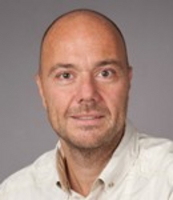Markus Christmann
Mechanisms of DNA Damage Induced Senescence

During life, organisms are constantly exposed to genotoxic stress. This causes DNA damage that, in the case of failed repair, leads to the accumulation of mutations, carcinogenesis, cell death or senescence. To counteract these effects, DNA repair mechanisms have evolved that remove or tolerate DNA lesions, and thereby maintain genomic integrity. We are interested in the mechanism of senescence induction by environmental mutagens and anticancer drugs and in the senescence-related regulation of DNA repair. Within the current projects, we focus on elucidating the role of the DREAM complex and of histone modification within the maintenance phase of DNA damage induced senescence.
Positions held
- Since February 2013: Professor for DNA repair research at the Department of Toxicology, University Medical Center in Mainz
- 2001 - 2013: Postdoctoral Fellow, Department of Toxicology, University Medical Center in Mainz
Education
- 2010: Habilitation and Venia legendi for Toxicology, University Medical Center, Mainz
- 2001: PhD in Toxicology, Department of Toxicology, University Medical Center, Mainz
- 1996: Diploma in Biology at the Institute of Molecular Genetics, Genetic Security Research and Consulting, Johannes Gutenberg University, Mainz
Selected publications by Markus Christmann
Allmann S, Mayer L, Olma J, Kaina B, Hofmann TG, Tomicic MT and Christmann M (2020) Benzo[a]pyrene represses DNA repair through altered E2F1/E2F4 function marking an early event in DNA damage-induced cellular senescence. Nucleic Acids Res, 48:12085–12101 Link
Aasland D, Götzinger L, Hauck L, Berte N, Meyer J, Effenberger M, Schneider S, Reuber EE, Roos WP, Tomicic MT, Kaina B and Christmann M (2019) Temozolomide induces senescence and repression of DNA repair pathways in glioblastoma cells via activation of ATR-CHK1, p21, and NF-κB. Cancer Res, 79:99–113 Link
Christmann M, Boisseau C, Kitzinger R, Berac C, Allmann S, Sommer T, Aasland D, Kaina B and Tomicic MT (2016) Adaptive upregulation of DNA repair genes following benzo(a)pyrene diol epoxide protects against cell death at the expense of mutations. Nucleic Acids Res, 44:10727–43 Link
Tomicic MT, Aasland D, Naumann SC, Meise R, Barckhausen C, Kaina B, Christmann M (2014) Translesion polymerase eta is upregulated by cancer therapeutics and confers anticancer drug resistance. Cancer Res, 74:5585–96 Link
Tomicic MT, Reischmann P, Rasenberger B, Meise R, Kaina B and Christmann M (2011) Delayed c-Fos activation in human cells triggers XPF induction and an adaptive response to UVC-induced DNA damage and cytotoxicity. Cell Mol Life Sci, 68:1785–98 Link
